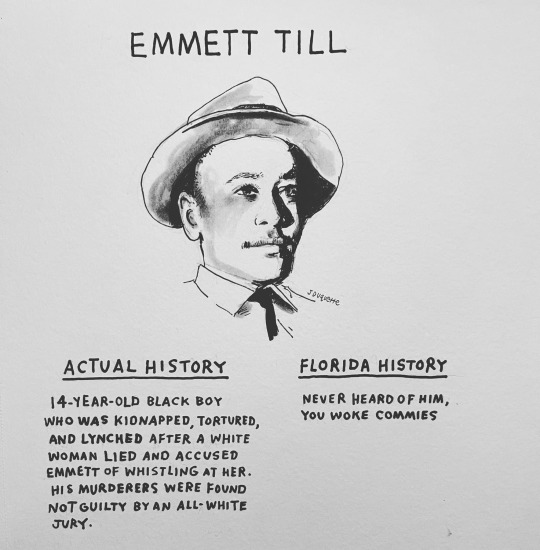#Study in Europe for Indian Students
Explore tagged Tumblr posts
Text
Emergence of Europe As A Top Study Destination and What the Future Holds
At EduGo Abroad, we have witnessed a steady uptick in the number of Indian students opting to study in Europe, particularly in countries like Ireland, Germany, Denmark, and so on. For the longest time, students would generally perceive the US, Canada, Australia and the UK as the places where one ought to be.
It’s not that Europe wasn’t seen as a coveted destination, but students were usually inclined towards studying in the aforementioned countries as they felt that their economic standing and policies were conducive to their cause of finding a job and possibly settling down in that country for the foreseeable future. When the pandemic was at its peak, foreign education didn’t skip a beat as the number of students leaving for these countries annually continued to rise and was forecasted to rise close to 2 million in 2024-2025.

This really hasn’t been the case though, however. In fact, overall interest has declined this year as suggested by an analysis of their own database by education financer GyanDhan. The analysis, conducted across state lines, concludes that there “has been a significant 22% drop in the number of students looking for abroad education loans as compared to the same period last year. This decrease in interest was even more pronounced in some states. Telangana witnessed a 30% drop and Gujarat, a 35% drop.”
Heart of the Matter
What could be driving this? Well, as far as we’ve observed, the job markets in these countries haven’t really fared well, and students have had a hard time finding and holding down jobs. It was always difficult to find jobs in non-tech fields, but it has now been exacerbated further, meaning that more and more students are returning home. This is far from ideal as a lot of students intend to cover their initial outlay, in terms of fees amongst other miscellaneous expenses, through the jobs they land there after concluding their studies.
In Australia, stricter scrutiny of applications from Indian students and doubling of fees has contributed to the downward trend. The UK contemplated restricting student entries even further, meaning that students, especially those who intend to pursue a non-tech education, aren’t as keen about these countries as they used to be.
Where One Door Closes, Another Opens
While on one hand the declining numbers across the board make for an interesting study by themselves, what should pique the interest of everyone in the spectrum of foreign education is the increasing interest in pursuing an education in countries such as Ireland, Germany, and Spain, among others. In the past few years, we’ve observed students are beginning to explore options other than the conventional ones, and there’s a growing realization as to the number of amazing, seemingly understated foreign education options, the vast majority of which are in Europe.
In our experience, students are attracted to these countries as they have assumed a more international student-friendly approach; application processes that are easier to navigate, more fluid visa processing, providing students with more flexibility in terms of working whilst studying, not compelling students to take IELTS/TOEFL, and so on. If we are to gaze at the numbers themselves, “there’s a 100% increase in interest in Irish universities among aspirants in Gujarat, Telangana, Tamil Nadu, Andhra Pradesh, and Karnataka”, according to GyanDhan’s analysis.
The Need for Measured Perspective
Before someone reading this gets carried away, it is imperative on our part as experienced and responsible foreign education consultants to implore prospective students to understand what studying in Europe is all about, understand their own plans, and contemplate accordingly.
To put it in the simplest of terms, one must avoid seeing Europe as “easy migration”. Whenever we provide advice to prospective students, we tell them that Europe isn't akin to Canada - one cannot emigrate simply by enrolling themselves in a random course to facilitate their stay and eventually earn permanent residency whilst working on the side. Europe is very, very open to people studying, working, and even settling down there, but it has to be meaningful - one must choose their course carefully, evaluate how it shall help their career path, and whether the skills they’d earn are in-demand so as to help them navigate the job market. Therefore, if one is seeking easy migration, Europe might not be the right move.
One must also take into consideration that every country in Europe has its own unique language and cultural disposition. It is not just paramount to learn the language, but also to embrace the culture there. Students can get by with English during their study, but could struggle once they step into the job market since a lot of things in Europe are done in the native language of the country. In any case, being multilingual is a major plus on one's CV and adds to their personal growth, so when one picks Europe, it is important to be receptive to learning the language and the way of life there. To sum it up, if one is serious about carving out a meaningful career and is willing to put forth the effort to learn the language and mingle with the local culture, then Europe represents an immense opportunity.
Conclusion
All in all, even if there have been challenges owing to socio-political situations unfolding around the world, there’s cause for optimism. Indian students’ general interest in pursuing a foreign education isn’t going to die down anytime soon as the desire for top-quality education and a higher standard of life is ubiquitous amongst an upwardly-mobile, aspirant middle class. The way we see it - this is more akin to diversification and students spreading their options out amidst growing options, as opposed to a decline.
#best Europe education consultant#country in Europe#easy migration#Europe As A Top Study Destination#foreign education#Heart of the Matter#study abroad#study in Denmark#study in Europe#Study in Europe for Indian Students#study in France#study in Ireland#study in UK#top-quality education
0 notes
Link
Europe is a continent of diversity, culture, and innovation. It is also a continent of excellence in education, research, and career opportunities. If you are looking for a place to pursue your higher education goals, Europe might be the perfect choice for you. However, you need to know the Europe study visa requirements before you can study in Europe.
0 notes
Text

Want to know more? Click here.
1 note
·
View note
Text
The Ultimate Roadmap to Free Education at Public Free Universities in Germany
Tuition fees are one of the main concerns of international students. Thankfully, several public free universities in Germany aim to eliminate inflated tuition fees from the equation. Public free universities in Germany with free certification are free for all: not just students from the European Economic Area (EEA). By “free,” we mean these universities don’t charge astronomic enrollment fees. Some administrative charges may apply. But, paying partial tuition fees to public free universities in Germany is much, much cheaper than paying full tuition fees at any European college. Are you a young Indian student planning to do your master's or study MBA in Europe for free? For 15+ years, European Study Institute has helped hundreds of Indian students overcome language barriers and gain entrance into German universities. Is Education Free at Public Universities in Germany? Most “tuition-free” German universities charge students administrative, enrollment, and other basic student services fees. Apart from these semester-wise payments, there are no annual or monthly tuition fees that students have to pay at either bachelor’s or master’s level. Some postgraduate or post-employment level courses may carry semester fees (e.g., for advanced MBA courses). These fees are called “Semesterbeitrag” & they amount to €300-400 per month. In comparison to private institutes, these fees are substantially lower in German public universities. Getting a free MBA in Germany for Indian students also involves the following living costs: Rent/Utilities: €350-500 € Food/Drink: €200 Health Insurance: €100 Phone/Internet: €30 Students can easily get by on less than €900 per month. Can I Apply for Scholarships at Free Public Universities in Germany? Visit the official website of the German Academic Exchange Service (DAAD) to find an up-to-date list of scholarship programs from private and public universities in Germany. Can I stay in Germany after Finishing My Course? Yes. All international graduates, regardless of their educational background or country of origin can apply for a one-and-a-half-year residence permit post-graduation. These “post-study work visas” allow students to apply for any job that suits their qualifications. How to Apply to Free Public Colleges in Germany? Different public universities in Germany have different application processes, deadlines, and student requirements. Here’s a list of the most highly-rated public free universities in Germany with links to their websites: Free University of BerlinHumboldt University Berlin Technical University of Berlin University of Hamburg Trier University RWTH Aachen University University of Heidelberg University of Bonn University of Duisburg-Essen Visit these websites to check out their current requirements regarding non-European International students. For more info, visit the DAAD website, Germany-based study portals, and Facebook Groups that consist of International students. How to Get into a German Public University? Plan in advance, build a strong academic and extra-curricular portfolio, and give yourself a few months to complete the application process. Most importantly - learn the language. If you need extra help, contact our German educators at the European Study Institute!
#free mba in germany for indian students#best free certification courses for computer science engineers Germany#public free universities in germany#study mba in europe for free#Free Data science and artificial intelligence in Germany
0 notes
Text

#best abroad education consultancy#Study in Abroad#study in foreign country#study abroad consultants#study in uk#study in usa#study in europe#Study in germany#top education consultants in india#study in foreign country with scholarship#education consultants in hyderabad#best consultancy for germany in hyderabad#best overseas education consultants in hyderabad#education in Abroad#best educational consultancy#higher study in germany for indian students#best canada education consultants in hyderabad#study in uk for indian students#uk student visa consultants in Hyderabad#Best UK Education Consultants in Hyderabad#Best UK overseas education consultants in Hyderabad#Study in UK consultants in Hyderabad#Best consultancy for the USA in Hyderabad#USA abroad educational services in Hyderabad
1 note
·
View note
Text
Study in Europe for Indian Students
Study in Europe for Indian Students- European countries are the home of top universities and educational institutions. They offer a wide range of accredited programmes to Indian students at affordable cost. From application to visa assistance & student loans, Superbstudyabroad will guide you at every step | 24x7 support. Find information on top universities, IELTS coaching, financial help and Visa. To get free & Complete Expert consultation, call us on +91 9654187866.
Read More: https://superbstudyabroad.com/study-in-europe/

0 notes
Text
https://www.edugoabroad.com/
europe education consultants
overseas education consultants
abroad education consultants
#Europeeducation#europe education for indian students#ahmedabad#india#overseas study consultants#study in france#study in uk#study in ireland#study in poland#study in denmark
0 notes
Text
Best Consultant for Europe Student Visa in Ahmedabad
Nationwide Overseas Education is esteemed as the best Europe student visa consultant in Ahmedabad. We provide guidance for scholarships, top course/university selection, visa application, financial assistance, etc. We empower students to achieve their goals and fulfill their dreams of study in Europe. Contact the best Europe education consultant today.
#europe student visa consultant in ahmedabad#europe study visa#student visa in europe#best consultant for europe study visa#study in europe consultants#europe study visa consultants#europe student visa consultants#europe study visa for indian#Nationwide Overseas Education
1 note
·
View note
Text
Abroad Services of Medico Abroad Consultants – 2021 Batch to Belarus
Abroad Services of Medico Abroad Consultants – 2021 Batch to Belarus
The students group of 2020 Batch admitted to MD (General Medicine) / MBBS@ Gomel State Medical University, Belarus was accompanied by Mr. V.Rajaram, Managing Partner of Medico Abroad Consultants, Hyderabad, India and proper care and support are provided till the acclimatization of students at Gomel. The hallmark of Medico Abroad Consultants is to assume the parental role and fulfill the services…

View On WordPress
#abroad MBBS#abroad mbbs studies#abroad mbbs study#after 12th medical courses#belarus mbbs#best colleges for mbbs in world#best countries for mbbs#best country for mbbs#best country for mbbs for indian students#best medical colleges in world for mbbs#cheapest mbbs in world#europe mbbs#full form of mbbs md#m bb s full form#mbbs abroad#mbbs abroad under 10 lakhs#mbbs course duration#mbbs duration#mbbs duration in abroad#mbbs full form#mbbs in abroad for indian students#mbbs in belarus#mbbs in europe#mbbs study abroad#mbbs study in abroad#neet long term#study mbbs abroad#which country is best for mbbs#with or without neet#without neet
0 notes
Text

The Daily Don
* * * *
President Biden to name national monument for Emmet Till and his mother.
The brutal torture and murder of Emmett Till followed by his mother’s decision to hold an “open casket” funeral changed America. In 1955, a young Black teenager, Emmett Till, was abducted and killed because a white woman accused Till of “whistling” at her and grabbing her wrist. (The woman later recanted the accusations during an interview for a book.) Till’s nearly unrecognizable body was pulled from a river, where it was weighted with a 75-pound cotton gin fan secured to his neck by barbed wire. Nearly 250,000 people walked past his casket, and hundreds of thousands more saw photos of Till’s mutilated body in his casket.
Two white men were charged with the murder and acquitted by an all-white jury. The defendants confessed to the crime a few months later in an interview given to Look Magazine—for which they were paid $4,000, a hefty sum in 1956. Having been previously acquitted, they could not be tried again for murder because of the Constitution’s double jeopardy prohibition.
Emmett Till’s murder and his mother’s bravery in holding an open-casket funeral galvanized the nascent civil rights movement and helped to inspire a generation of civil rights leaders, including Rosa Parks and Martin Luther King. On Monday, President Biden announced that he is declaring three sites as a national monument to Emmett Till and his mother, Mamie Till-Mobley. See NYTimes, Biden to Name National Monument for Emmett Till and His Mother. (This article is accessible to all.)
President Biden’s actions come at a moment of renewed overt racism in America. Florida’s new history curriculum includes prompts asking students to consider ways in which slavery “benefitted” enslaved persons by giving them skills they could use after emancipation. See Florida’s State Academic Standards—Social Studies, 2023. The linked document includes the following “benchmark” standard (on page 6):
Benchmark Clarifications: Clarification 1: Instruction includes how slaves developed skills which, in some instances, could be applied for their personal benefit.
The proposed “benchmark clarification” is a stunning revision to an institution where white owners profited from forced labor by enslaved persons. To suggest that any part of that forced labor was “beneficial” is a cruel and dishonest whitewashing of a vile institution. But Ron DeSantis nonetheless defended a “pro-slavery” curriculum that his culture war unleashed in Florida. See The Independent, DeSantis defends Florida curriculum that suggests slaves benefited from forced labor.
But the Academic Standards linked above are far worse than the media portrays. The issue is not a single snippet—the language quoted above—it is the entire approach to teaching the history of slavery in the United States. I invite you to review pages 5 through 10 of the Academic Standards, and you will discover that much of the curriculum is devoted to describing slavery in Africa, Europe, and Asia—apparently to make the disgusting point that “everyone else was doing it.” For example, the “benchmark clarifications” on page 9 include the following:
Benchmark Clarifications: Clarification 1: Instruction includes how trading in slaves developed in African lands (e.g., Benin, Dahomey). Clarification 2: Instruction includes the practice of the Barbary Pirates in kidnapping Europeans and selling them into slavery in Muslim countries (i.e., Muslim slave markets in North Africa, West Africa, Swahili Coast, Horn of Africa, Arabian Peninsula, Indian Ocean slave trade). Clarification 3: Instruction includes how slavery was utilized in Asian cultures (e.g., Sumerian law code, Indian caste system). Clarification 4: Instruction includes the similarities between serfdom and slavery and emergence of the term “slave” in the experience of Slavs. Clarification 5: Instruction includes how slavery among indigenous peoples of the Americas was utilized prior to and after European colonization.
All of the above smacks of a white-racist defense of slavery in the US. Thankfully, Joe Biden is resisting the effort by the right to erase America’s shameful history of slavery and Jim Crow laws that enforced a system of apartheid for nearly a century after the Civil War.
[Robert B. Hubbell Newsletter]
#Emmett Till#The Daily Don#Robert B. Hubbell#Robert B. Hubbell Newsletter#racism#Benchmark Clarifications#Academic Standards#monuments
37 notes
·
View notes
Text
One of the first things we think about when we land in a new place, with all the abundant and wonderful possibilities it inhabits, is food. Nothing elicits joy or dismay, brings people together or polarises them quite like food. Landing up in Germany, particularly to study in Germany, comes with its own anxieties -the newness of it all can be both exciting and daunting. In this scenario, nothing brings a dash of much-needed comfort and helps you immerse yourself in the local culture quite like food. Food, in the larger context, enables you to understand the history that shaped the cultural landscape of said country, and relate with the prevalent culture.
When it comes to mouthwatering food, Germany has plenty to go around. In this blog, we shall highlight some must-try dishes that you must give a go! So while you’re excitedly waiting for your German student visa to arrive, you can trust us to whet your appetite by listing some amazing dishes that you would fall in love with and come to crave throughout your student life in Germany.
Don’t worry - if meat, eggs or even dairy are a big no-no for you, we’ve got you covered! Without further ado, let’s dive right in.
1) Halloumi Im Brot
A semi-hard, unripened cheese made from a concoction of goat and sheep milk, the origins of Halloumi are said to lie in Cyprus although Egypt has also laid claim to it. Bit of a "who came first - the chicken or the egg" conundrum right there and the debate continues to rage, but one thing's for certain - it's delightfully scrumptious.
Over centuries, Halloumi went from being a staple in Cypriot to a celebrated ingredient to many a delicacy across the Mediterranean and the world. Halloumi im Brot, in particular, refers to a sandwich which features a grilled or fried halloumi. Combining the homeliness of bread with the savoury, rich elements of halloumi, the dish also features vegetables like tomatoes, cucumbers, and lettuce along with a drizzle of olive oil or a squeeze of lemon juice. This dish is hearty while encompassing a variety of flavours and textures.
Fun fact: In 2021, the European Union granted halloumi Protected Designation of Origin (PDO) status, ensuring that only cheese produced in Cyprus following traditional methods can be labelled as "halloumi."
It’s super duper healthy too, and has plenty to offer in the protein and calcium department, so feel free to help yourself to a few!

2) Sauerkraut
This one’s especially for the meat-connoisseurs and the trivia lovers - Sauerkraut has been an essential sidekick to plenty of incredible meat-based dishes. It is essentially fermented cabbage, although in present-day there’s a chance you might mostly find the pickled variety. It bears a distinct sour flavour and given that it is made from lactic acid, forming from bacteria that ferments sugars present in the cabbage leaves.
What’s in it for the trivia lovers, you’d say. Well, it’ll come as a surprise to you, but Sauerkraut isn’t from Germany! It was actually conceived in China 2000 years ago by workers who were only provided with shredded cabbage and rice to fend for themselves. They began to store their food in rice wine, which helped with extending shelf life while also landing themselves a nutritious, highly durable source of nutrition. When you’re hungry and need something to keep you going while being inundated with assignments and deadlines, Sauerkraut should keep you in good stead and give you a loaded dose of dietary fibre, Vitamin C, Iron, and Potassium with each serving.

3) Spätzle
While it remains an ever-favourite in Germany, Spätzle isn’t exactly well-known outside of the country. If you’re craving something rich, cheesy and buttery, these fresh egg noodles should make your tummy extremely happy. In theory, the dish is redolent of mac & cheese, but trust us - it’s so, so, so much more than that!
Spätzle are squeezed through a press, shaved off the edge of a board or sliced straight into the boiling water. Afterwards, the simmered Spätzle are drained and then fried in butter. After that it is either baked with grated cheese (KäseSpätzle), or served as a side dish.
It’s taken pretty damn seriously in the region of Swabia - The European Commission made Schwäbische Spätzle and Knöpfle into protected types of pasta. If they have been produced in Swabia, they are permitted to bear the quality seal of “protected geographical indication” which is valid throughout the EU.

4) Pretzels
They never fail to hit it out of the proverbial park when it comes to bakery in Europe. This is all the more applicable to Germany, which is home to a plenitude of delicious baked items, namely the infamous pretzel. This knot-shaped treat is famous the world over, usually coming as a savoury snack one can have when craving something baked. They can make for a very filling treat whilst remaining low-fat, although nutritionists do not exactly swear by its virtues given that it is high on sodium and carbs. So while you can munch on a fair few, moderation is essential.

5) Apfelstrudel
This list wouldn’t be complete without apfelstrudel, which is a traditional German pastry dish made with thin layers of dough filled with sweetened apple slices. Like pretzels, it’s popular all over the world and if you enjoy baklava, you’d definitely want to try this! Historically, the apfelstrudel is linked to Austria but has multicultural origins so when you have it, you’re having a dish which has been evolved through the contribution of myriad culinary approaches.

Conclusion
When you finally kickstart your dream to study in Germany, and begin your university life, it is absolutely essential that you relish your time there as it’s not only about the university you’d attend - it’s also about gaining exposure to new cultures and ways of life, and as we established earlier, trying the local food can play a massive role towards you doing that. Life in Germany for Indian students is filled with opportunities to explore German culture and lifestyle, and diving into the local cuisine is a fantastic way to start. Enjoy these dishes and let them be a delicious part of your student life in Germany!
#5 Dishes You Must Try#Apfelstrudel#German culture and lifestyle#German pastry dish#German Student Visa#Halloumi Im Brot#Landing up in Germany#Life in Germany for Indian students#mouthwatering food#Pretzels#Sauerkraut#Spätzle#student life in Germany#Study In Germany#University Life in Germany#Europe Education Consultant#Study Abroad#Study In Europe
0 notes
Link
Studying abroad is a life-changing experience that can open up a world of opportunities for Indian students. Europe is one of the most sought-after destinations for international students, with many top-ranked universities and a vibrant cultural scene.
0 notes
Text

The best European country where you can pursue your higher education without IELTS and at an affordable cost. Contact Now
#study abroad#study europe#educaion#czech republic#czechia#indian students#kerala#kochi#best educational consultancy
1 note
·
View note
Note
How do you feel about white Europeans telling people who aren’t European they can’t speak on things like racism across Europe? There’s a white European radfem from Germany on here who is constantly getting so weirdly pissed and defensive when Americans on here discuss racism that’s prevalent throughout Europe. And as a dark skinned Indian-American woman I experienced a fuck ton of racism when I studied abroad in many European countries. My study abroad program was set in Spain back in 2018, but when I visited France one weekend I had off my classes, I overheard a French couple comment about how dark my skin was saying something like “dark skinned people always look so dirty and they must never be clean.” I have never once forgotten the deflated and exhausted feeling that remark made me feel. I remember being excited on that day because as someone studying linguistics I was there to broaden my horizons about their culture and language and yet I had such a bad experience there. But anyway, after having that experience (and others) I���m just confused as to why as an “American” we wouldn’t be allowed to comment on the horrific racism seen in European countries. She has a recent post about this too and I feel like this is such a weird time to post something like that knowing how many white Europeans have just been exposed for being racist. I know you’re middle eastern living in Germany so I wondered your opinion on this.
i always hate when ppl pretend that theres noooooooo way to have any awareness of the state of a country unless u actively are living in it. first of all as u mentioned, plenty of people living in europe are not european and its weird telling us that we cant speak on what we have experienced in europe bc we arent from there. ive also experienced several instances of racism in the european countries ive lived in and if someone told me "ur not european dont talk about it" i would just think thats a weird way of silencing the group of ppl often facing racism in europe. secondly, some aspects of racism in other nations can easily be confirmed and are things ppl can learn about without having actively lived in that country. i didnt need to visit ukraine or poland to know theyve got a racism problem for example bc the news i was reading on how poc were treated in life-threatening situations (when students of colour were trying to leave ukraine whn the war started, for example) is enough to give me that impression. comparatively, i dont need to live in the southern US to know that the southern US has a racism problem....several news on that part of the world, information from poc in the south, and the history of southern US is enough to clue me in on that.
that said, i can get being frustrated if people are speaking on something and act like theyre quite informed but actually are not. sometimes people rely entirely on stereotypes and speak on experiences in certain parts of the world without having actual understanding of it. i have seen that too and it does annoy me at times when ppl discuss things in my region as if theyre quite informed on it when theyre actually not accurately reflecting our realities. so i can understand such a comment in certain contexts but also, people are far better informed about europe than they are informed about idk south africa. so sometimes that statement can just be a way of dismissing opinions u dont like, but in some cases it at least is a reaction to real ignorance. so my feelings on it depend on the context
#side note but im curious who this radfem ur referrng to is#also the ppl who say americans dont know about racism in europe also generally do not know about it either lol bc theyre white af#trust me most white europeans have barely any awareness on the reality of racism in their own countries. why would they? theyre not victims#of it.
6 notes
·
View notes
Text
@persepinesascent asked, "And there are other books?"
These are all of the books I have written that are currently available:
Governments Around the World Discover the evolution of governments everywhere! This social studies book explores the past, present, and possible futures of governments around the world. Across the world, local, state, and national governments work to protect and serve their citizens. This teacher-approved book provides students with opportunities to understand the ins and outs of government, including how governments from different countries can work together. The book covers the structure and history of each type of government in an easy-to-follow way. With a glossary and index, essential discussion questions, and other engaging features, this book brings the intricacies of government to life for students.
The Middle East Explore the beautiful land and ancient history of the Middle East! This social studies book describes the rich art, science, and culture of the land where Africa, Asia, and Europe meet. Known as a cradle of civilization, the Middle East is famous for its natural resources and fascinating past. This teacher-approved book offers students opportunities to understand life in the Middle East, including the history of indigenous peoples in the region. The book incorporates the geography, history, economics, and civics of the Middle East in an easy-to-follow way. With a glossary and index, key discussion questions, and other useful tools, this book brings the wonders of the Middle East to life for students.
The Southwest Dive into the fascinating culture of the southwestern United States! This social studies book describes how the Southwest embraces its rich American Indian, Spanish, and Mexican heritages. From ancient pueblos to the Old West to today, the Southwest is a region steeped in history and culture. This teacher-approved book gives students the chance to explore the lives of people from the Southwest, including the diverse history of native peoples in the region. The book covers the geography, history, economics, and civics of the midwestern United States in an easy-to-follow way. With a glossary and index, key discussion questions, and other useful features, this book brings the beauty of the Southwest to life for students.
The Mississippi and Other U.S. Waterways Explore the amazing life of one of the world’s busiest waterways! This social studies book tells the story of the Mississippi River and other important U.S. waterways. The Mississippi River has flowed for millions of years, and today it provides people with food, water, and transportation. This teacher-approved book offers students the chance to dive into the rich history of U.S. rivers, including the history of native peoples along riverbanks. The book covers the geography, history, economics, and civics of the Mississippi Valley in an easy-to-follow way. With a glossary and index, essential discussion questions, and other useful features, this book gives students a thoughtful inside look at major U.S. rivers and waterways.
Untold Stories Untold Stories is a series that uses fascinating tales about real people and events to boost literacy skills, empower students, and promote representation. The Untold Stories series describes ordinary people doing extraordinary things, all while promoting representation and culturally responsive learning.
Rewrite the Stars Suppressed memories from childhood. You have always known you were different. You are not alone. There are others like you. A healer. A prophet. A mystic. A martyr. God. The world is changing and you are changing with it. This is called evolution. Los Angeles-based Performance Artist, Das Energi (David Scott Coleman), brings his art to the page in this spiritual tour-de-force of stylistically postmodern storytelling. Across multiple narratives, Das Energi taps into the anxiety of our time to create a world of magical realism that won't seem like fiction. "David Scott is taking risks in this collection of poetry and prose, giving us characters and concepts, we haven't experienced before." —Steven Reigns, author of "Inheritance".
7 notes
·
View notes
Text
Bulgaria Student Visa For Indians, Prefer To study In Foreign Lands
Education is a necessary part of a person’s life and their growth. How a person grows depends on where they attained their education. That’s why students are very serious about their education. While there are many great options in the country, still many students prefer to study outside the country. Those students, want to live life outside their country and get an education from outside. There are many different options available for students. Each of the countries offers something unique. Choosing the right option depends on various factors, and budget is one of the most necessary parts of it. Bulgaria and Vietnam are some of the most popular countries available. These two places are quite popular among Indian students when it comes to studying outside the country. Bulgaria Student Visa for Indians is available easily as Bulgaria and India have friendly relationships.
Bulgaria for students
Bulgaria is one of the most popular countries in Europe. It is highly developed and has a higher standard of living. When it comes to education, the country has very popular Universities and a great culture of education. It is a historical country in Europe with great festivals and an overall open culture that allows for the mind to grow. All the popular options such as medicine, engineering, and Humanities are available to study. The visa of Bulgaria is also available for a very reasonable price. Being a part of Europe, Bulgaria has an advantage in the reputation that it has. Anyone who is educated in Europe is regarded as a well-disciplined and well-educated person. The country is a decent place for studying liberal arts subjects such as history and music. Other options such as engineering and medicines are also available. For studying in Bulgaria, it is necessary to be accepted into a university first then a Visa has to be applied. Later on, a residency permit is also needed to live in Bulgaria for a longer time. All this process takes time.
Vietnam for students
Vietnam is another option that is very popular for Indian students, when compared to Bulgaria this country has a similar culture to India. Bulgaria is a small country that is available in Asia near Thailand. The visa is also very cheap and is one of the cheapest places to study. Vietnam Student Visa for Indians is easy to get thanks to the open and friendly relationship between the two countries. The country has historic cities like Hanoi that are beautiful and quite affordable. Every year hundreds of students from India go to Vietnam to study medicine. Vietnam can be a better option for those who are looking to study in a place that is similar to India and has a simple culture and weather. Overall, it all depends upon the choice of students and what they prefer is better for them. Vietnam is a cheaper option compared to Bulgaria but it is still in Asia and Bulgaria is a part of Europe so it is a different continent but is more expensive.
2 notes
·
View notes